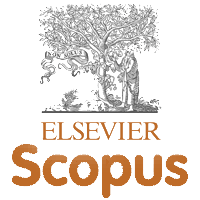THE MEDIATING EFFECT OF THE PERCEIVED USEFULNESS AND EASE OF USE OF TIKTOK ON KNOWLEDGE ACQUISITION AND SELF-EFFICACY OF STUDENTS WITH SPECIAL NEEDS
Abstract
This research explores the mediating effect of the perceived usefulness and ease of use of TikTok on the relationship between knowledge acquisition and self-efficacy among Special Education (SPED) students. The study aims to investigate the potential of TikTok as a culturally relevant teaching tool in SPED classrooms and its impact on students' self-efficacy.
Using a quantitative research design, the study involved 260 SPED students at Northwestern Mindanao State College of Science and Technology. A questionnaire was administered via Google Forms to ensure the safety of the participants during the pandemic. A parallel mediation model was used to determine the indirect effects of two mediators on knowledge acquisition and self-efficacy.
The results indicated that both mediators had a significant effect on the relationship between knowledge acquisition and self-efficacy with, perceived ease of use having a greater impact than perceived usefulness. Specifically, knowledge acquisition positively influenced self-efficacy through the students’ perception of the usefulness of TikTok and its ease of use.
The findings suggest that the self-efficacy of SPED students can be improved by using TikTok, especially due to its usefulness and ease of use. These results highlight the potential benefit of TikTok not only as a culturally relevant teaching tool, but an inclusive teaching strategy for SPED classrooms. Implications for educators and practitioners in promoting effective and inclusive learning experiences are discussed.





